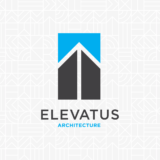Great Architecture Starts by Listening

When you walk into a space that just feels right, you know it. The layout works. The energy fits the purpose. It feels intuitive, familiar, and comfortable. That experience doesn’t happen by accident — it comes from listening.
At Elevatus, that’s where design begins. With people. Architecture shapes how we feel, how we function, and how we connect. Whether we’re designing a justice center, a school, or a wellness facility, we believe the best outcomes begin with early and thoughtful engagement. That might mean correctional staff, sheriffs, or justice-involved individuals. It might mean students, teachers, or school leaders. It might mean nurses, doctors, therapists, or community members seeking care and connection. Every project brings a different set of voices to the table, and each one helps shape a design that feels authentic and human.
We start by listening. Through interviews, surveys, visioning sessions, and on-site conversations, we learn how spaces are used, what challenges people face, and what success looks like. These insights turn abstract goals into grounded, people-centered priorities. They give context, reveal patterns, and inspire ideas that wouldn’t emerge in a vacuum.
From there, we begin to shape those ideas into experiences. Tools like Cardboard Cities — full-scale mock-ups of key areas — or virtual reality allow people to walk through layouts in real time. They can test how rooms connect, visualize lines of sight, and identify opportunities to improve flow or function. It’s a hands-on way to experience the design before it’s built.
These methods work when supported by a clear and collaborative structure. Early on, we establish roles, define responsibilities, and outline decision-making pathways. This helps ideas move freely without creating confusion. Our team facilitates discussion, keeps the project on track, and ensures that every contributor understands how their input fits into the larger vision.
Communication stays steady from start to finish. We share visuals, provide updates, and invite input at key milestones. Stakeholders remain connected to the process, and their influence is visible at every stage. The result is a space shaped by many voices but delivered with focus and precision.
This approach has led to safer, more respectful justice facilities where staff and individuals feel protected and supported. It has guided the creation of learning environments that reflect the energy of students and the values of educators. It has shaped wellness centers that foster dignity, comfort, and connection—because patients, providers, and community members were part of the conversation from the beginning.
Listening builds trust. It creates belonging. It ensures that every project reflects the real needs of those it serves. At Elevatus, we believe architecture is an opportunity to improve lives. We’re proud to design in service of people. By engaging with communities across justice, education, and health and wellness, we help shape environments that uplift, connect, and heal. Every project is a chance to listen, to learn, and to build something that matters.



